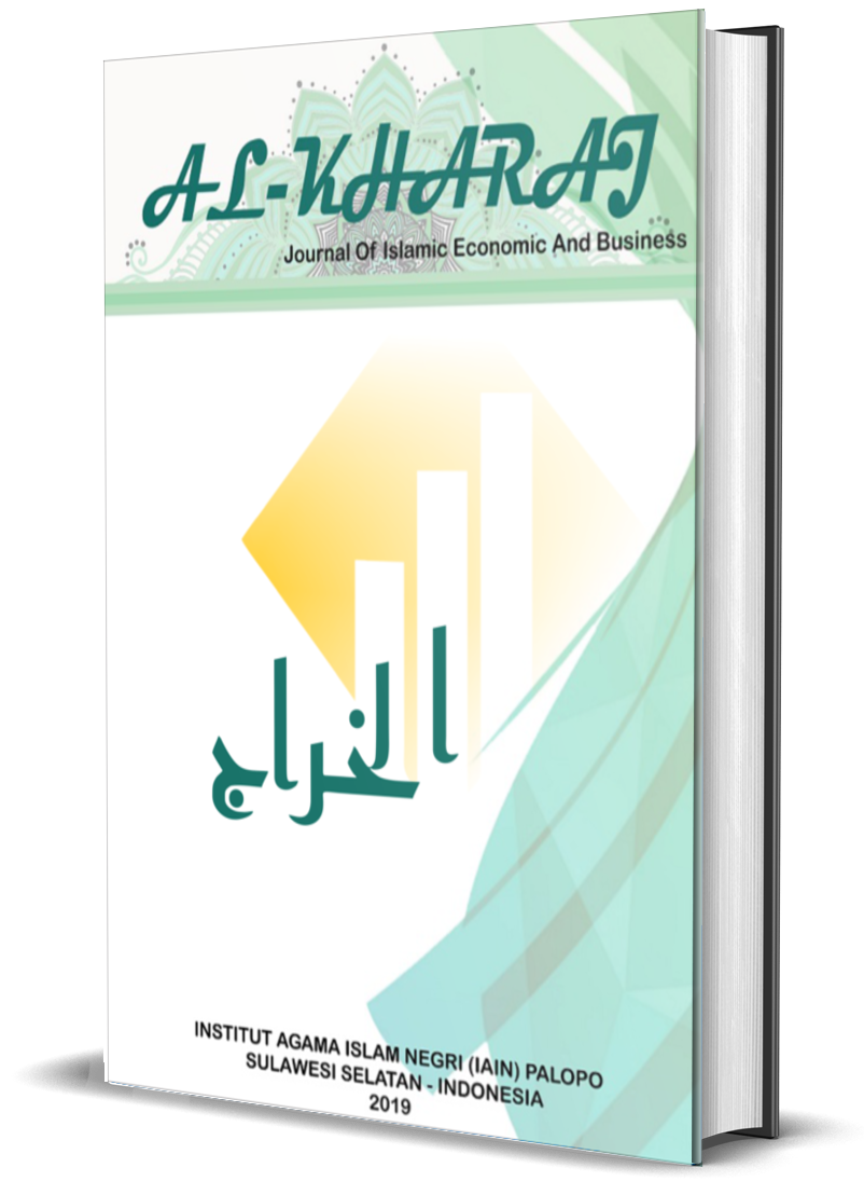Tolerance And Peace As Enhacing Factor In Sharia Economic Growth
DOI:
https://doi.org/10.24256/kharaj.v6i3.5400Keywords:
Tolerance, Peace, Sharia EconomicsAbstract
This study investigates the relationship between tolerance, peace, and sharia economic growth through a literature review approach. The focus is on understanding how tolerance and peace play roles as an enhancing factor in Sharia economic growth. High tolerance and maintained peace are considered crucial in creating a conducive environment for the development of a Sharia-based economy. Through a literature review, it was found that tolerance opens up opportunities for financial inclusion and investment in the Sharia economy, while peace provides the stability necessary for sustainable economic growth. The results of this study are expected to provide deeper insights into the importance of tolerance and peace in strengthening the Sharia economy, as well as provide a foundation for further research in this field.
References
Atmaja, I. M. D. (2020). Building Tolerance Through Multicultural Education. Undiksha Journal of Civic Education, 8(1), 113–121.
Ayandari, A. A., & Afriyanto, D. (2022). The Concept of Fraternity and Tolerance in Building Religious Moderation in a Multicultural Society in Indonesia: The Perspective of Kh. Hasyim Asy'ari. Journal of Religion : Journal of Religious Studies, 18(02), 64–86.
Fahlevi, R., & Khotijah, S. A. (2023). Analysis of Interest in Becoming Sharia Accountant Services for Accounting Students of Tidar University in Supporting the Sharia Economy in Indonesia. 2(6), 2082–2091.
Fitriani, S. (2020). Diversity and Tolerance Between Religious Communities. Analysis: Journal of Islamic Studies, 20(2), 179–192. https://doi.org/10.24042/ajsk.v20i2.5489
Khaira, U., & Yahya, A. (2018). Implementation of Peace Efforts in Divorce Cases (A Study of the Verstek Decision at the Bireuen Syar'iyah Court). De Jure Journal of Legal Research, 18(3), 319. https://doi.org/10.30641/dejure.2018.v18.319-334
Khoerunisa, L. (2019). The Concept of Peace from the Perspective of K.H. Abdurrahman Wahid and Its Application in Education.
Kusuma, R., Azhar, D., Bashori, K., & Samsuddin, M. (2020). Instilling Peace Values in Peacesantren. 21(2), 134–146.
Rahmani, Z., Hijran, M., & Oktariani, D. (2023). The Role of Sharia Economic Education in the Development of the Nation's Character. Al-Muqayyad, 6(1), 42–48. https://doi.org/10.46963/jam.v6i1.1017
Salman, K. R., & Mujahidin, M. (2022). Studies on Transparency of Financial Statements, Management of Zakat and Attitudes of Amil and Efforts to Increase Muzakki’s Trust. Al-Kharaj: Journal of Islamic Economic and Business, 4(1), 10–22. https://doi.org/10.24256/kharaj.v4i1.2033
Sofiandi, Husni, D., Masbukin, & Nuh, Z. M. (2022). Between economics and tolerance frame the economy in diversity. TOLERANCE: Religious Communication Media, 14(2), 71–83.
Siri, R., & Rahmi, R. (2023). The Importance of Sharia Economy in Religious Moderation. Al-Kharaj: Journal of Islamic Economic and Business, 5(4). https://doi.org/10.24256/kharaj.v5i4.4701
Tamaeka, V. (2022). Instilling Tolerance Values Through Character Education in Elementary Schools. Scientific Media of Religious Communication, 14(1), 14–22.
Turhamun, M. S., Franciska, W., & Halim, A. N. (2023). The Application of Peace in Sharia Economic Dispute Resolution. JIMPS: Scientific Journal of History Education Students, 8(3), 2881–2891.
Downloads
Published
How to Cite
Issue
Section
Citation Check
License
Copyright (c) 2024 Alifah, Hamidah, Anisa, Rizal

This work is licensed under a Creative Commons Attribution-ShareAlike 4.0 International License.
Authors retain copyright and grant the journal right of first publication with the work simultaneously licensed under a Creative Commons Attribution-ShareAlike 4.0 International License. In line with the license, authors are allowed to share and adapt the material. In addition, the material must be given appropriate credit, provided with a link to the license, and indicated if changes were made. If authors remix, transform or build upon the material, authors must distribute their contributions under the same license as the original.









